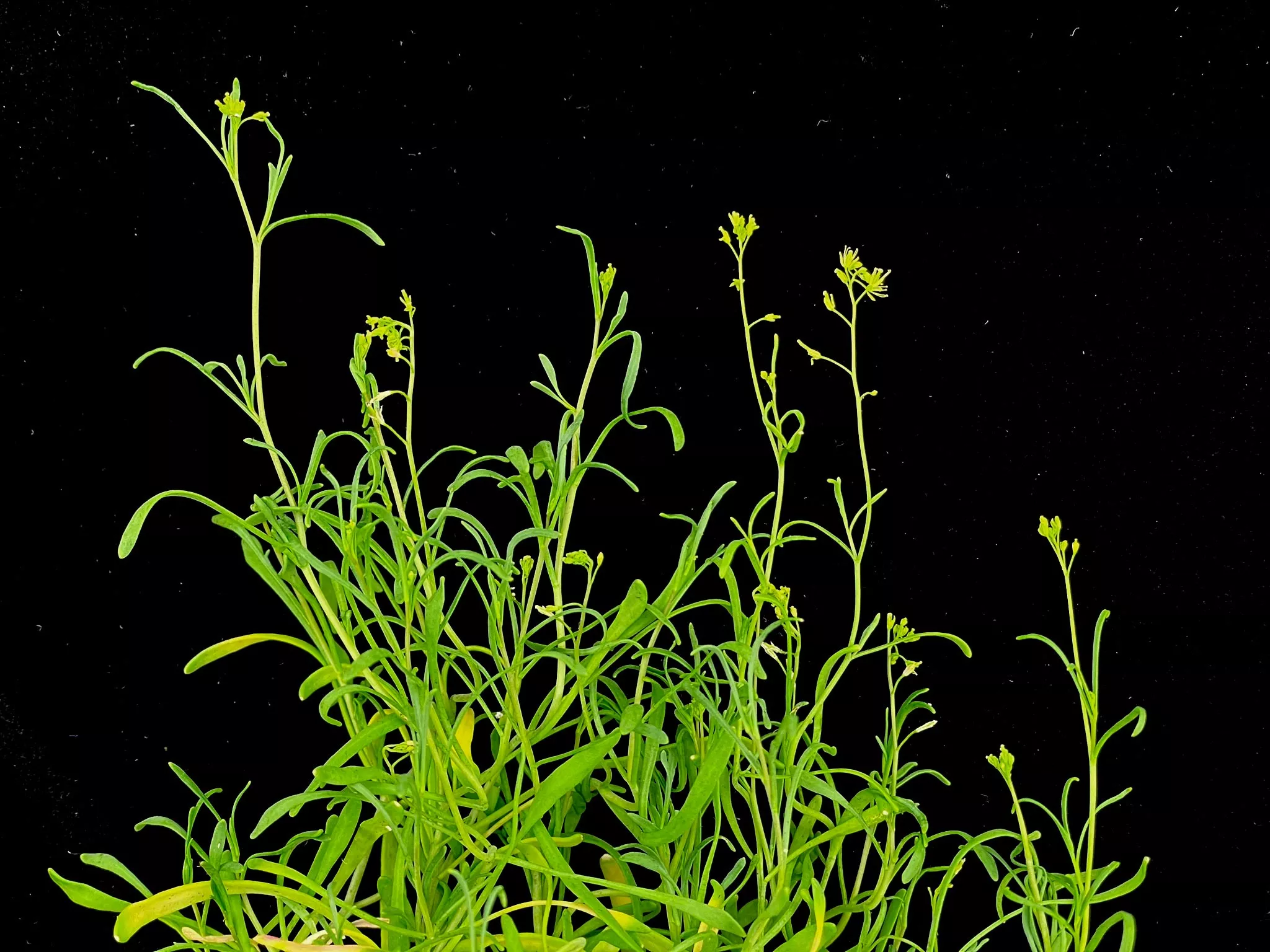When plants face conditions that are too dry, too salty or too cold, most plants try to save resources. They emit fewer leaves and roots and close their pores to retain moisture. If the environment does not improve, they will eventually die. But some plants, so-called extreme plants, have evolved to survive in harsh environments.

Schrenkiella parvula is a disorganized member of the Cruciferae family. It can not only survive under conditions that will kill most plants, but also thrive. It is understood that it grows on the shore of Tuz Lake in Turkey, where the salt concentration in the water may be five times higher than that in the ocean. In a paper published in nature plants on May 2, 2022, scientists at Stanford University found that schrenkiella parvula actually grew faster under these stress conditions.
"Most plants produce a stress hormone that acts like a stop signal for growth. But in this extreme plant, it is a green light. Plants accelerate growth in response to this stress hormone," said Jos é dinneny, an associate professor of biology at Stanford University and the lead author of the study
Dinneny and his colleagues are studying schrenkiella parvula to learn more about how some plants deal with adverse conditions. Their findings will help scientists design crops that can grow in low-quality soil and adapt to the pressure of climate change.

Ying sun, a postdoctoral researcher at the Salk Institute and first author of acting papers, said: "with climate change, we can't expect the environment to remain unchanged. Our crops will have to adapt to these rapidly changing conditions. If we can understand the mechanisms that plants use to withstand stress, we can help them do it better and faster."
An unexpected reaction
Schrenkiella parvula is a member of the Cruciferae family, which contains cabbage, broccoli, radish and other important food crops. In areas where climate change is expected to increase the duration and intensity of drought, it will be very valuable if these crops can withstand or even thrive during these drought periods.
When plants encounter dry, salty or cold conditions - all of which produce water related stress - they produce a hormone called abscisic acid (ABA). This hormone activates specific genes, basically telling plants how to respond. The researchers examined how several plants in the Cruciferae, including schrenkiella parvula, respond to ABA. When the growth of other plants slowed down or stopped, the root growth rate of schrenkiella parvula was significantly accelerated.
Although schrenkiella parvula is closely related to other plants in the study and has a genome of very similar size, ABA is activating different parts of its genetic code to create a completely different behavior.
"The rewiring of the network explains, at least in part, why we get these different growth responses in pressure resistant species," dinney said
Designing future crops
Dinneny says understanding this stress response - and how to design it in other species - may not only help food crops. Schrenkiella parvula is also associated with several rape varieties that may be designed as a sustainable source of aviation fuel or other biofuels. If these plants can adapt to growing in worse environmental conditions, more land will be available to cultivate them.
"You want to grow bioenergy crops on land that is not suitable for growing food - such as farmland with soil degradation or salt accumulation due to improper irrigation. These areas are not major agricultural properties, but land that will be abandoned," dinney said
For now, dinney and his colleagues are continuing to study response networks that can help plants survive extreme conditions. Having learned how paraadrenaline maintains its growth in limited water and high salinity, they will try to adjust which genes are activated by ABA so that related plants can do the same.
"We are trying to understand what the secret of these plant species is - what makes them grow in these unique environments and how we use this knowledge to design specific traits in our crops," dinney said.